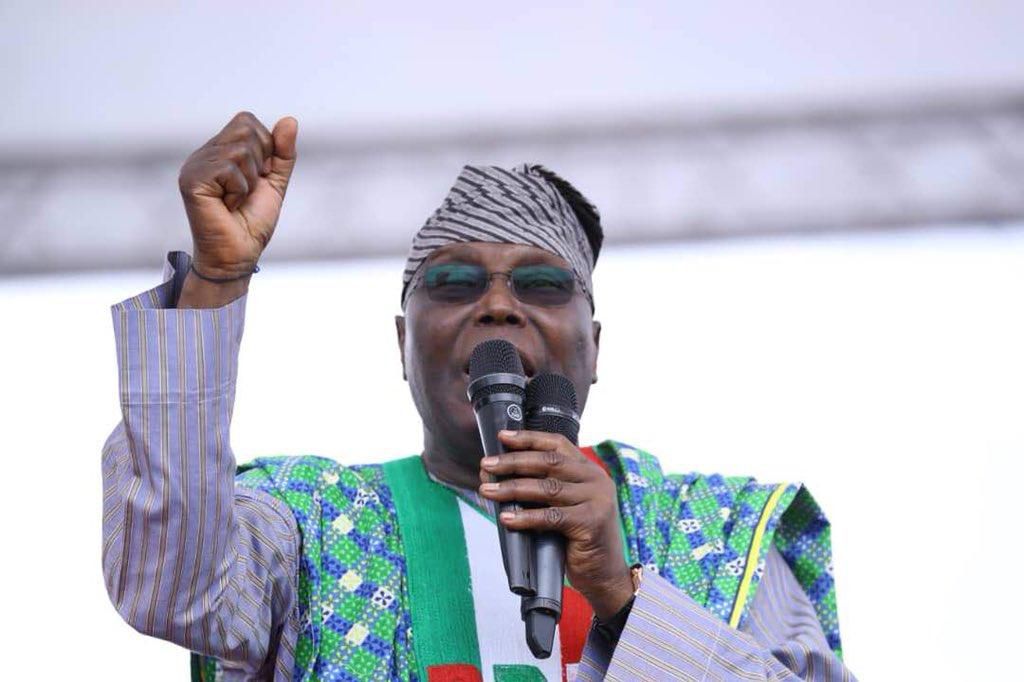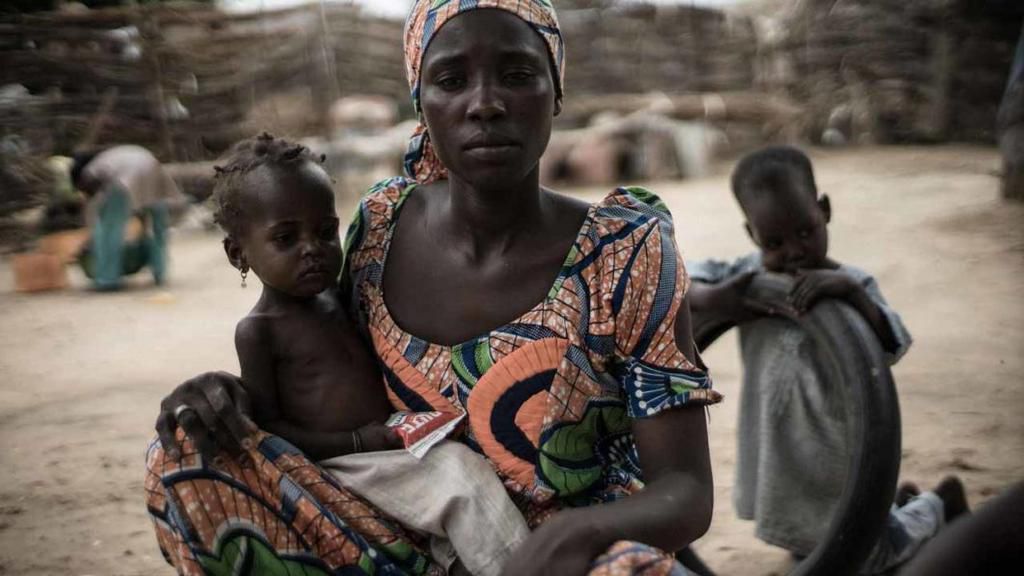Nigeria ends 2018 with 90.8 million people living in extreme poverty
)
An estimated 90.8 million Nigerians are living in extreme poverty as 2018 winds down to a close.
It was first revealed in June 2018 that Nigeria had overtaken India as the nation with the highest number of people living in extreme poverty across the world, with an estimated 86.9 million people measured to be living on less than $1.90 (N684) a day.
According to available data courtesy of the World Poverty Clock, a web tool produced by World Data Lab, that number has increased by nearly four million more Nigerians in just six months.
This is despite the fact that the estimated 643.5 million people living in extreme poverty all over the world has dropped to 592.7 million in the same period.
![World Poverty Clock as of December 2018 [World Poverty Clock]](https://image.api.sportal365.com/process/smp-images-production/pulse.ng/01082024/98621009-9526-44ad-96a3-8ad4c211960b)
As of the time of this report, the 90.8 million Nigerians living in extreme poverty constituted a staggering 46.4% of its estimated 195.6 million total population.
This has risen from the 44.2% of the total population that was recorded in June.
![World Poverty Clock as of December 2018 [World Poverty Clock]](https://image.api.sportal365.com/process/smp-images-production/pulse.ng/01082024/f2872be4-4a02-4ac1-bb5d-6e0307cf50a5)
Despite the rise, Nigeria's escape rate has improved from -5.8 people per minute in June to -4.5 people per minute in December. However, this falls terribly short of the escape rate target of 14.4 people per minute in Nigeria.
How Nigeria's extreme poverty epidemic affects 2019 general elections
The astonishing number of Nigerians living in extreme poverty has become a hot-button issue in the country especially with the 2019 general elections two months away.
Since Nigeria's unwanted status as the poverty capital of the world was first announced in June, the current administration of President Muhammadu Buhari has been widely-criticised for its poor handling of the economy.

Even though the government insists that it's taking all the right steps to stabilise the economy and set it up for an upward trajectory, opposition figures have pointed to the damaging poverty figures as proof that Buhari's government has failed Nigerians.
The government's social investment programmes, such as the conditional cash transfer programme where the 'poorest of the poor' are given N5,000 monthly stipend, have been dismissed as half measures that will not solve the problem.
During the December 14 Vice Presidential debate, Vice President, Yemi Osinbajo, credited the programme for "taking at least 400,000 people so far out of poverty line".
While speaking days later during the presentation of the 2019 budget to a joint session of the National Assembly, President Buhari said, "297,973 households in 26 states across the country are benefitting from the Conditional Cash Transfer program".
The government's efforts in combating poverty in Nigeria have been ridiculed by economists and key opposition figures gunning for the presidency next year.

Buhari's biggest opponent at next year's polls, Atiku Abubakar, boasted last month that if he becomes president next year, he would implement sound economic policies that would see no fewer than 50 million Nigerians elevated out of poverty within two years.
"These investments will create a minimum of 2.5 million jobs annually and lift at least 50 million people from poverty in the first two years," the former Vice President said.
However, in his policy document, lifting 50 million Nigerians out of poverty is documented as a six-year plan.
"Our policy goal is to lift at least 50 million people out of extreme poverty by 2025," he wrote.
Another presidential candidate gunning for Buhari's job, Oby Ezekwesili, has also promised to lift 80 million Nigerians out of poverty by fostering human capital development as president.
"Our agenda is about creating wealth - growing the pie exponentially, creating jobs, building shared prosperity and taking at least 80 million Nigerians out of poverty," the former minister said in October.
Other presidential candidates, including a former deputy governor of the Central Bank of Nigeria (CBN), Kingsley Moghalu, have also vowed to vastly reduce poverty levels in the country if elected over 76-year-old Buhari next year.
How Nigeria became world's poverty capital

World Poverty Clock provides real-time poverty estimates until 2030 for almost every country in the world, monitoring progress against ending extreme poverty which is the United Nation's first sustainable development goal.
According to its methodology, the World Poverty Clock uses publicly available data on income distribution, production, and consumption, provided by various international organizations, most notably the UN, World Bank, and the International Monetary Fund.
These organizations compile data provided to them by governments in each country. In the few cases when governments fail to provide data, the agency uses models to estimate poverty in affected countries. The agency's data covers 99.7% of the world's population.
For Nigeria, the general household survey (GHS) from 2012/2013 is used, rather than the harmonised Nigeria living standards survey, because it is more recent and believed to be of higher quality.
The agency notes that the challenges of estimating poverty in Nigeria stem from the fact that Nigeria is not a homogeneous country, especially with distinct differences in economic conditions between the south and the north. National averages conceal these differences and surveys are not sufficiently representative at the state level to draw firm conclusions.
The agency believes poverty has fallen over time along with economic growth in southern states, while it has been more stubborn in northern states but the differences cannot be factored into national level calculations.
Civil unrest and conflict in selected northern areas where terrorist group, Boko Haram, has been active is believed to contribute to the negative impact on poverty, even though there is insufficient data to quantify it.

![Aisha blows hot on Security forces; Y7ou won't believe what she said [VIDEO]](https://image.api.sportal365.com/process/smp-images-production/pulse.ng/17082024/1f976edf-1ee2-4644-8ba1-7b52359e1a8f?operations=autocrop(640:427))
)
)
)
![Lagos state Governor, Babajide Sanwo-Olu visited the Infectious Disease Hospital in Yaba where the Coronavirus index patient is being managed. [Twitter/@jidesanwoolu]](https://image.api.sportal365.com/process/smp-images-production/pulse.ng/16082024/377b73a6-190e-4c77-b687-ca4cb1ee7489?operations=autocrop(236:157))
)
)
)
)
)
)
)
)
)
)
)